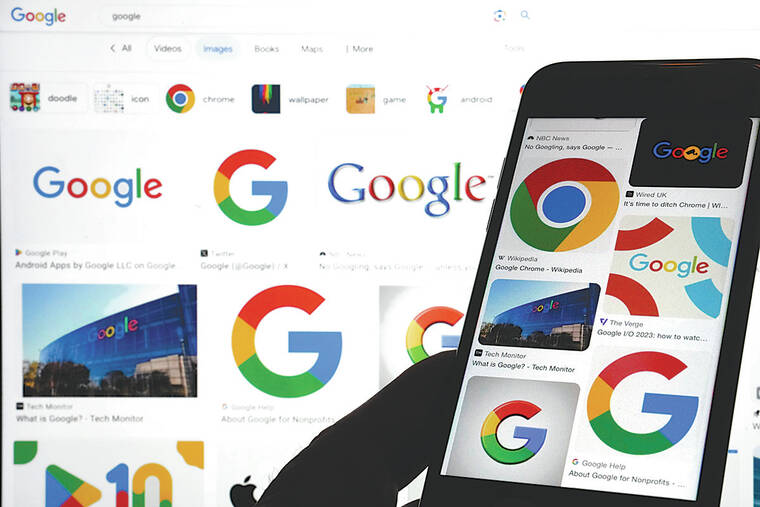Fortnite maker accuses Google of bullying and bribing to block competition to its Android app store
SAN FRANCISCO — Google on Monday confronted the second major U.S. antitrust trial in two months to cast the internet powerhouse as a brazen bully that uses its immense wealth and people’s dependence on one of its main products to stifle competition at consumers’ expense.
The trial that opened in a San Francisco federal court targets the Google Play Store that distributes apps for the company’s Android software that powers virtually all the world’s smartphones that aren’t made by Apple.
The case, stemming from a lawsuit filed by video game maker Epic Games, alleges Google has created an illegal monopoly on Android apps primarily so it can boost its profits through commissions ranging from 15% to 30% on purchases made within an app.
“The result of what Google is doing is higher prices, lower quality and less choice for everybody,” Epic attorney Gary Bornstein said Monday during a 45-minute opening statement before the 10-person jury that will decide the case.
Google attorney Glenn Pomerantz attempted to debunk the portrait of the company having a stranglehold on Android apps by outlining a wide gamut of competition from rival mobile and video game console stores, as well as Apple’s store for apps that run on its iPhone software.
“Because Google faces strong competition from Apple and others, it cannot be and is not a monopolist,” Pomerantz asserted in his opening statement.
Google’s strategy to lean on Android’s competition with Apple and the iPhone in its trial with Epic is tinged irony. That’s because Google in September became immersed in the biggest U.S. antitrust trial in a quarter century — a case largely centered on payments that the company makes to Apple to ensure its dominant search engine automatically fields queries made on iPhones.
Epic’s allegations against Google mirror those leveled against Apple in a case that went to trial in May 2021.
Although a federal judge sided with Apple on most fronts in that trial, the outcome opened one potential crack in the digital fortress that the company has built around the iPhone.
The judge and an appeals court both determined Apple should allow apps to provide links to other payment options, a change that could undermine the 15% to 30% commissions that both Apple and Google collect on digital purchases made within a mobile app. Apple is appealing that part of the ruling to the U.S. Supreme Court, where Epic is also challenging most elements of the case that it lost.
Epic is now taking aim at Google’s commission system, even though Android software is already set up to allow other stores, such as Samsung’s installed on its phones, distribute apps that work on the operating system. Even so, Epic maintains that Google still maintains a stranglehold on the Android app ecosystem and the payment system attached to it — and has paid hundreds of millions of dollars to stifle competition.
In his opening statement, Bornstein accused Google of deploying a “bribe and block” strategy to discourage competition and then make it too cumbersome or worrisome for consumers to download Android apps from other distribution outlets than the Play Store.
The trial before U.S. District Judge James Donato is scheduled to last until just before Christmas.


